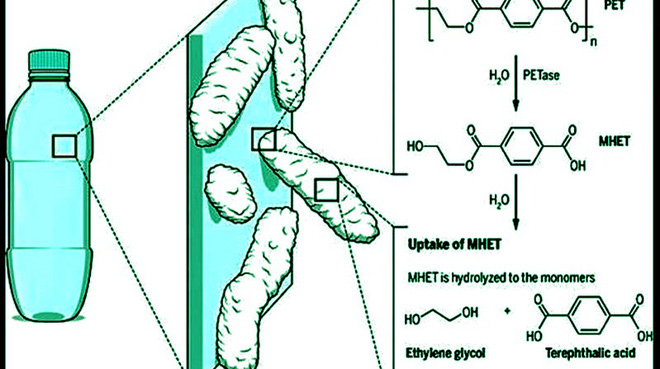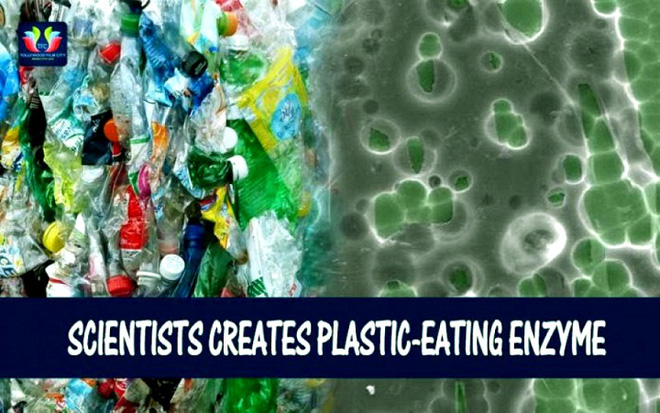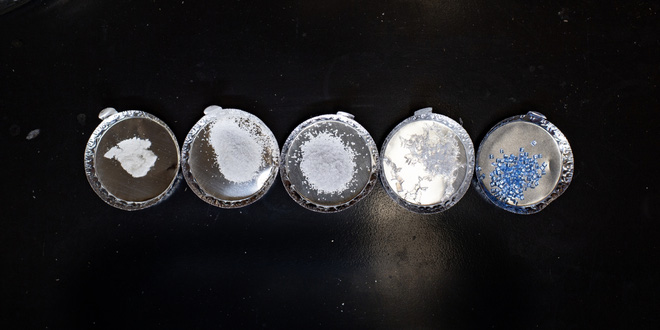In modern life, plastic waste is a hot issue all over the world. Every minute the world consumes 1 million plastic bottles and 5 trillion plastic bags; every day, nearly 19,000 tons of plastic waste ends up in the ocean. Therefore, the problem of how to reuse that plastic waste is causing headaches for scientists.

Plastic waste is a hot issue around the world
At a time when the Covid-19 epidemic is complicated, people are facing unemployment and labor decline globally. The source of income is limited, food is not enough to buy, can only “scratch land” to live through the day. But no, times have created heroes. Two American scientists Stephen Tecktmann and Ting Liu have just won the Future Insight Prize in 2021 for creating a process that allows plastic to be recycled into… edible.

The activity model and chemical structure of the enzyme
They are proposing to create separate containers in which people can carry plastic waste and inedible biomass. Such wastes will be transferred to technological reactors, where, under heating, polymers are broken down into monomers (separate components).
The resulting by-product, which resembles the texture of the oil, is placed in a bacterial reservoir. This bacterium will swallow waste, creating new bacterial cells that are 55% protein. Those protein cells are dried to form a powder that can be stored for food use.

Microscopic image showing I. sakaiensis (blue) cavitating PET resin (gray)
There is no microorganism of its own with such great ability. Tecktmann’s mission as a microbiologist was to find and grow bacteria that could eat plastic, and Liu genetically engineered these bacteria to create a protein powder with nutritious amino acids and maximum unsaturated fatty acids, making the final product more useful.

The researchers plan to dedicate part of their prize ($1.2 million) to developing a fully biological process to convert plastic into food. To date, more research is needed to ensure the safety of the resulting powder, but the technology has the potential to provide both a new food source and a waste treatment method.
What will plastic food taste like? Let’s wait for the future to answer.
Source: Tri Thuc Tre
